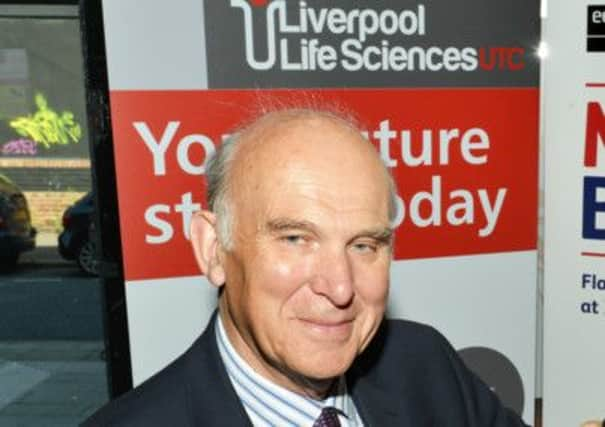Warwick University researchers win £12 million to create new centre


This research will help drive advances in pharmaceuticals, high-value and commodity chemicals, innovative treatments for disease, environmental bioremediation, and food security.
It will also play a major role in helping to achieve a much better understanding of some of the key principles underpinning living systems.
Advertisement
Hide AdAdvertisement
Hide AdVince Cable, the Secretary of State for Business, Innovation and Skills, announced last week that researchers at the Warwick Integrative Synthetic Biology centre (WISB) have been awarded a five-year £12 million grant.
WISB brings together researchers from across the university in disciplines including Life Sciences, Engineering, Chemistry, Computer Science, Education, and Law.
Vince Cable announced the new centre as part of a £40m investment in UK synthetic biology at the Manchester Institute for Biotechnology, where researchers are using the technology to investigate how to use bacteria in place of fossil fuels to produce the chemicals we need to manufacture a wide variety of everyday products from credit cards, to nappies, to Tupperware tubs.
The investment comes from the Biotechnology and Biological Sciences Research Council (BBSRC), Engineering and Physical Sciences Research Council (EPSRC), the Medical Research Council (MRC) and capital investment from UK Government.
Advertisement
Hide AdAdvertisement
Hide AdDr Cable said: “From materials for advanced manufacturing to developing new antibiotics and better tests for diseases, this new £40 million investment is in one of the most promising areas of modern science.
“It will see our world class researchers using bacteria to produce chemicals to make everyday products like toothbrushes and credit cards, which are currently made from unsustainable fossil fuels. ”
Professor John McCarthy of the university’s School of Life Sciences and director of WISB) said: “WISB is building a globally recognised presence as a centre of excellence in research and training in Synthetic Biology, and this grant from BBSRC and EPSRC will help us enormously in achieving our goals.”